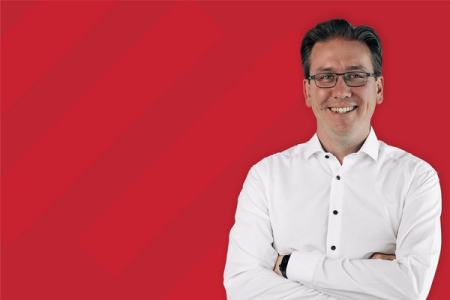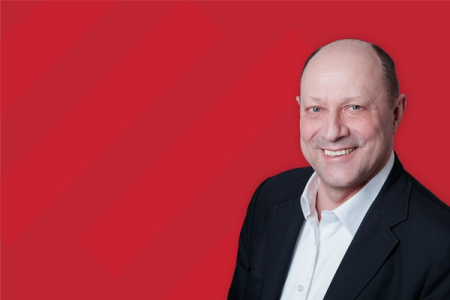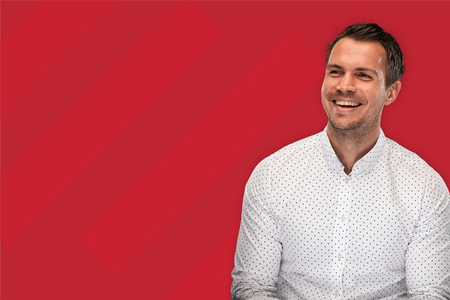You’ll learn...
- Daily, Value Stream, Strat: The 3 Consulting Programs That Drive Company Growth
- How Kaizen Institute Earns More Revenue With 'Proposal Success Fees'
- How Kaizen Institute Delivers Immediate Results With Intensive 5-Day ‘Kaizen Events’
- How Kaizen Institute Develops by Leveraging Its Own Consulting Programs
- How ‘Benchmark Visits’ and the ‘Kaizen Lean Award’ Helped the Company Win Clients
Read time: 6 minutes
Kaizen Institute is an international consulting firm with offices in 40+ countries. They offer a service called Kaizen, the implementation of Kaizen or Continuous Improvement Systems.
Originally developed by Japanese automobile manufacturer Toyota, Kaizen, also known as LEAN Continuous Improvement, is an ongoing improvement process to constantly improve the manufacturing of products, services, or processes. Kaizen directly translates to ‘Good’ (Kai) ‘Change’ (Zen).
In this article, Euclides Coimbra, Partner and Managing Director at Kaizen Institute—the mother of LEAN consulting companies—shares insider insights about how the company has achieved an impressive YoY growth rate of 20% by internally implementing the very same principles they teach to their clients.
You’ll learn the three results-driven Kaizen Institute consulting programs that drive growth, how the company earns more money with ‘proposal success fees’, how the company develops internal talent through 5-day events, and much more.
Ready to discover the power of Kaizen? Let’s dive in.
Daily, Value Stream, Strat: The 3 Consulting Programs That Drive Company Growth
Kaizen Institute has 3 consulting programs they offer their clients: Daily Kaizen, Value Stream Kaizen, and Strat Kaizen.
Before they offer these solutions to their clients, they experiment first on themselves, asking questions like, “Are our value streams are delivering value to the customer?” and, “Do we need to make big improvements in our value streams?”
Let’s take a closer look at Kaizen’s 3 consulting programs.
- Daily Kaizen: In this program, Kaizen Institute focuses on developing the leadership skills of team leaders within an organization. By empowering these leaders to implement improvements in their own workplace, businesses can foster a culture of continuous improvement and drive efficiency at every level.
- Value Stream Kaizen: The Value Stream Kaizen program is all about enhancing the processes where value is added to a company. By analyzing customer satisfaction and implementing Kaizen events, Kaizen Institute helps identify areas for improvement and implement new processes that drive customer satisfaction. Expect improvements in quality, productivity, and delivery time, resulting in increased customer loyalty and profitability.
- Strat Kaizen: Strategic planning is at the core of the Strat Kaizen program. Kaizen Institute works with their clients to identify the most critical breakthroughs that will propel the company's growth. Whether it's increasing sales, profitability, or both, this program ensures that the strategy aligns with the company's growth ambitions.
By testing their solutions on themselves, Kaizen Institute ensures they’re capable of delivering on their promises. This is critical to the success of their ‘proposal success fee’ revenue model.
Let’s take a look at that in more detail in the next section.
How Kaizen Institute Earns More Revenue With 'Proposal Success Fees'
During his interview, Euclides shared how Kaizen Institute takes a unique approach by offering a risk-shared model to their clients.
Instead of demanding a 100% fixed fee, they align their goals with the client's objectives. By doing so, they demonstrate their commitment to achieving results and building a strong partnership. This not only fosters trust but also ensures that both parties are invested in the success of the project.
Typically, Kaizen Institute will propose a fixed-fee value of 70%, with the remaining amount depending on the degree of success. If Kaizen Institute deliver the results they promised, they’ll be paid the full 100% fee of that project.
Because Kaizen Institute regularly over-deliver on their promises, this model enables them to earn more. If the results are superior to what was originally forecasted, the company might earn as much as 30% more revenue.
“This is one of the reasons why we are growing a lot and why we have success in our company, because we deliver what we promise, and sometimes we deliver more than we promised, and we get a premium fee for that.” - Euclides Coimbra, Partner and Managing Director at Kaizen Institute
While this strategy is more risky, it has a hugely positive impact on team motivation.
Consultants at Kaizen Institute are inspired to keep pushing. To search for those extra 2–3% improvements that make all the difference to the client.
For this reason, Kaizen Institute doesn’t stipulate the number of days it will take to complete a project. Instead, they continue to work until the results are achieved. This approach puts a lot of pressure on the consultants, as they know there’s no set deadline,
They’re bound to the project for as long as necessary.
“We don't measure days. We deliver all the necessary days until the results are achieved. Until the benefits are realized.” - Euclides Coimbra, Partner and Managing Director at Kaizen Institute
For a model like this to work, Kaizen Institute needed to develop a company culture, team, and value steam that could bear the weight of this commercial arrangement.
To understand more about how the company build a strong foundation that enabled them to make–and not lose–money in this exchange, we need to dive into “Kaizen Events”.
How Kaizen Institute Delivers Immediate Results With Intensive 5-Day ‘Kaizen Events’
Unlike traditional consultancies, Kaizen Institute doesn’t offer recommendations in writing.
Instead, they work collaboratively and in-person with the client over the course of a 5-day workshop.
Here’s what the process looks like:
- Gather the team: Kaizen Institute assembles a team of senior consultants to visit the client
- Troubleshoot: They spend approximately 2 days together with the client exploring and analyzing the problems
- Experiment: On day 2 or 3 of the event, the consultants will brainstorm solutions and devise mockups
- Plan: By the end of the week, Kaizen Institute already has a plan, and has spent time training the client’s staff on the improvements.
- Deliver: In some cases, they already have results in terms of efficiency. In other cases, it takes a 90-day plan after the Kaizen workshop to finalize implementation and to start seeing the results.
It goes without saying that you need seasoned consultants you can trust for a process like this to be successful.
So how did Kaizen Institute develop the necessary internal talent?
They started training their core team of seven or eight consultants 25 years ago on several types of Kaizen Events, from planning to value steam analysis.
Now, they have a policy in which every senior consultant has a junior colleague who shadows them. Every year, Kaizen Institute feeds their talent funnel with about 30–40 new trainees who will learn from the very best.
Of course, this approach takes time, but it ensures that a new generation of senior Kaizen consultants is always ready and waiting.
How Kaizen Institute Develops by Leveraging Its Own Consulting Programs
Kaizen Institute practices what it preaches.
This may sound logical, but it’s shocking how few consultancy firms actually implement their own solutions internally to drive growth and develop the company.
During his interview on the LEADERS IN CONSULTING Podcast, Euclides explained how they used Strategy Kaizen internally to review the company’s core ambition—in this case, grow to $100 million and around 600 consultants—and determine what could be done better to achieve this goal.
“The only way to achieve this ambition is using the Kaizen mindset, asking yourself, ‘What is stopping me to grow? What is stopping me to have a bigger sales?’ And then we have to make an analysis. ‘What is our current state? What are our weaknesses? And what are the main obstacles on the way?’” - Euclides Coimbra, Partner and Managing Director at Kaizen Institute
Back in 2007, one of the boundaries Kaizen Institute recognized was their over-dependence on a handful of salespeople. They had plenty of leads, but not enough people nor a process in place to close.
They recognized that their current sales process was insufficient and thus not conducive to their ambition.
And after a more thorough analysis, they discovered that they were only winning 40% of the proposals sent out. That meant their competitors had the upper hand on them 60% of the time.
So, using the Hoshin-X Matrix, they plotted:
- What they wanted to achieve in 3 to 5 years
- How far they wanted to go in the first year
- How they were going to do it
- How they would measure success
- Who was responsible
“I trained 10 consultants initially. And we started having a biweekly sales meeting where we were following the KPIs and discussed, if we lost a proposal, why did we lose the proposal? We also implemented the CRM at that time, we implemented the sales meeting, we gave the sales training. So improving the sales process was our key driver that would allow us to overcome the problem. We did that for three years.” - Euclides Coimbra, Partner and Managing Director at Kaizen Institute
Thanks to this calculated approach, Kaizen Institute now has a refined sales process, sales training, sales standards, a very good CRM, sales meetings, and sales coaching, resulting in a new proposal acceptance rate of 80%!
Another area of the business that Kaizen Institute acknowledged needed attention was their marketing strategy, which leads us onto the final topic of this study: How 'benchmark visits' and the 'Kaizen Lean Award' helped the company win clients.
How ‘Benchmark Visits’ and the ‘Kaizen Lean Award’ Helped the Company Win Clients
In the past, marketing was not Kaizen Institute’s strong suit. They knew they needed to do better.
They also knew that ‘cold’ marketing doesn’t work in the consulting industry—the market is small, so you never want to burn your reputation in the pursuit of leads—so they implemented 2 clever initiatives: ‘benchmark visits’ and ‘The Kaizen Lean Award’.
Let’s take a look at these in more detail:
- Benchmark Visits: Instead of selling themselves, Kaizen Institute lets their clients do the talking. They organize half-day or full-day project presentations where satisfied customers showcase their success stories. With minimal intervention from Kaizen Institute, these visits create a powerful impact on potential clients. The result? A whopping 80% win rate on proposals generated from these visits!
- Kaizen Lean Award: To further boost their reputation, Kaizen Institute hosts an annual award ceremony where companies present their successful projects. Even if the projects were completed with other consultancies or internally, the public recognition creates a buzz and attracts new leads. After the ceremony, Kaizen Institute experiences a surge in inquiries from interested prospects.
According to Euclides, these marketing strategies have not only increased their lead generation but also improved their sales funnel success.
“For the next 3–4 weeks after the Kaizen Lean Award ceremony, we see an increase in the number of leads. Many people that assist, they are interested. They heard a success story. They call us, ‘Oh, I understand that you can apply Kaizen to improve, and I have the same problem. Can you come and explain your approach?’ It's a cool system that works." Euclides Coimbra, Partner and Managing Director at Kaizen Institute
The power of peer testimonials and success stories cannot be underestimated.
In Summary: Driving Success with Continuous Improvement
Kaizen Institute's innovative approach to consulting, grounded in the principles of continuous improvement, has led to remarkable growth and client satisfaction.
By adopting their own methodologies internally, they demonstrate a commitment to the Kaizen philosophy, ensuring their solutions are not only theoretically sound but also practically proven.
The unique revenue model of 'proposal success fees', the intensive and collaborative nature of their 5-day 'Kaizen Events', and strategic internal development through leveraging their consulting programs exemplify their dedication to excellence and results. Their clever marketing initiatives, like 'benchmark visits' and the 'Kaizen Lean Award', highlight the power of authentic customer experiences in attracting new clients.
The success of Kaizen Institute serves as a testament to the effectiveness of their methods and the potential of the Kaizen approach in driving company growth and development.
Well done to Kaizen Institute, and thank you to Euclides Coimbra for his insights!



